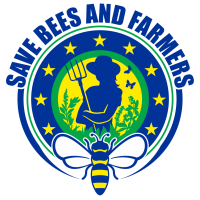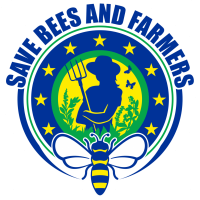Press releases
The European Parliament has sent a clear signal on the need to curb water pollution by voting in support of measures that will improve monitoring and help guide action.
MEPs on the Environment Committee supported new substances including a group of 24 PFAS, several pesticides and, for the first time, pharmaceuticals to be added to the lists of EU pollutants that require Member States to monitor and control the presence of these substances in surface and groundwater.
Farmers, citizens and nature in the EU are not properly protected from the negative impacts of dangerous pesticides. Recently The Guardian, Le Monde, Der Spiegel and other media reported on chemical companies withholding studies on the neurotoxicity of the pesticide substances for which they seek market approval. Keeping dangerous products on the market, harming people’s health. European parliamentarian Canfin compared it to 'Dieselgate'. This withholding of information appears to be just the tip of the iceberg.
Green Deal is to preserve a sustainable future for the next generations and farmers
EU Member States agreed to a proposal to ban one of Europe’s most toxic pesticides. The fungicide dimoxystrobin was authorised for use in 15 EU Member States. Pesticide Action Network cheers the decision. It is one of ‘The Toxic 12’ that now has gone down to 10. However, the decision should have been taken 7 years ago.
45 million loaves of bread. That was the argument of a conservative Austrian politician to allow crops on use areas destined for nature and biodiversity. One year later we see the results. Hardly any human food, only animal feed was grown. We lost 40% of the Ecological Focus Areas in the EU. Now the same 'hunger game' is played by the EPP to stop the urgent pesticides reduction. Fake arguments are pushed in the name of farmers. It only makes farmers more dependent on the agrochemical industry and it harms health and biodiversity.
PAN Europe welcomes the new EU Guidance Document on the risk assessment of pesticides on bees. After 10 years of political blockade, the European Food Safety Authority (EFSA) published an updated version of this guidance. It confirms that an urgent upgrade of the way pesticide toxicity is assessed in the EU is needed. PAN Europe supports a quick implementation of the guidance at EU- and national-levels.
DG Sante and EU Member States keep taking decisions that support the use of harmful pesticides. This is a violation of the EU pesticides legislation, the provisions of which aim to ensure a high level of protection for humans, animals and the environment. To address this maladministration PAN Europe filed 2 requests to the Commission to review its decisions. One concerns the new regulation on the identification of unacceptable co-formulants and the other concerns the Commission practice to keep approving highly toxic pesticides in greenhouses.
"Save Bees and Farmers" appeals for responsibility to ensure our common future of agriculture
Europe could and should be much healthier and biodiverse. Four years ago the PEST Committee in the European Parliament concluded after 9 months of investigations, hearings, missions and commissioning of studies that the current system of pesticides authorisation is failing to achieve its purpose, highlighting the need for urgent change.
Today the European Commission presented their formal reply to the 1,1 million citizens who signed the European Citizens Initiative “Save Bees and Farmers”. They welcome the initiative as a clear sign of broad public support for action for pollinators, biodiversity and sustainable farming. They urge the European Parliament and the Council to find swift and ambitious agreements on the legislative proposals to reduce pesticides and restore biodiversity.



